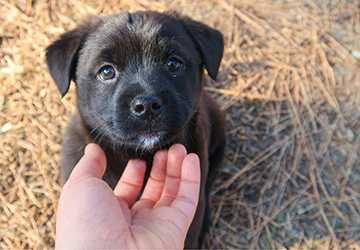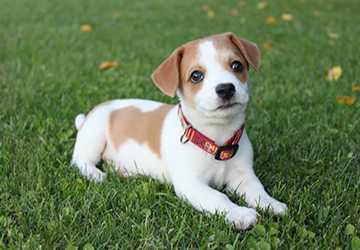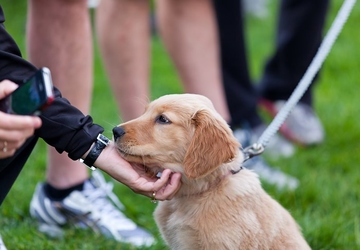Raising a puppy is a joyful experience that creates many lasting memories between pet parents and furry friends. However, it also has its fair share of challenges and training mistakes.
An alarming 89% of first-time puppy owners need help with proper training techniques. This leads to stressful situations at home and can contribute to long-term behaviour issues as your pup matures.
This post will bring awareness to five of the most common puppy training mistakes. Then, we will offer helpful tips and strategies to avoid these pitfalls altogether.
By taking proactive steps and implementing best practices, you set yourself and your puppy up for success to develop good manners and obedience.

5 Puppy Training Pitfalls & Prevention
In this section, we will dive into the five biggest puppy training mistakes people make so that you can sidestep these issues from the start. Read on to empower yourself with the knowledge and techniques to train your puppy effectively!
1.Failing to Socialize Your Puppy Properly
Socialization is vital during your puppy’s first 16 weeks of life. Without proper exposure to new places, people, dogs, sights and sounds, they risk developing fearfulness or aggression later.
Many owners need to dedicate more time or structure to the socialization process, which causes issues down the road.
Action Step: Construct a structured socialization plan that introduces your puppy to various stimuli in a positive, rewarding manner before 16 weeks. Attend puppy kindergarten classes and community outings and invite new people over regularly.
2.Not Establishing Yourself as the Leader
Dogs are instinctually pack animals that thrive with solid leadership in the home. If a human does not establish themselves as a confident leader early on, the puppy will take on that role, and a battle for dominance begins. This often leads to training challenges, anxiety, and willful disobedience.
Action Step: Use rewards-based training techniques to motivate your puppy to follow cues and respect you as the leader. Be patient yet firm when giving commands and set clear boundaries. Schedule feedings, exercise and training so your pup understands their place in the pack order.
3.Waiting Too Long to Start Training
Many owners think puppy training should not start until six months or beyond. However, waiting this long allows terrible habits to cement, and puppies have a more challenging time breaking behaviours that have been rehearsed repeatedly. The most critical age for puppy training is 8-16 weeks, when they are eager to learn.
Action Step:
- Begin foundational puppy training the very first day your puppy arrives home.
- Keep sessions extremely short (5 minutes max) but frequent throughout the day.
Use positive reinforcement techniques to work on critical skills like bite inhibition, potty training, and basic commands.
4.Failing to Exercise and Stimulate Your Puppy Properly
Puppies have lively energy and curious minds that need productive outlets daily. Without adequate physical and mental stimulation, they often get into mischief out of boredom and pent-up energy. This leads to destructive chewing, hyperactivity, nuisance barking and accidents around the home.
Action Step: Ensure your puppy gets appropriate exercise through playtime, training sessions, puzzle toys and walks. Additionally, provide interactive chew toys that dispense treats or kibble as your puppy learns to settle and entertain themselves while you are busy.

5.Being Impatient and Inconsistent
Puppies have short attention spans and weak bladder control. This understandably tests an owner’s patience during the training process. However, remaining calm and consistent with techniques sets your puppy up for success. If you scold or reprimand your puppy out of frustration, it destroys trust and delays progress.
Action Step: Approach training with realistic expectations, knowing progress may seem slow initially. Reinforce wanted behaviours instantly with praise or treats when they happen so your puppy understands the connection. Accidents and chewing mistakes should be gently redirected without anger or punishment. Stay the course; your investment will pay off through your puppy’s manners.
Conclusion
Avoiding common mistakes and pitfalls is crucial for puppy training success. Now that you are armed with knowledge on proper socialization, leadership, timing, exercise and patience, you can feel empowered to train your puppy effectively.
Implementing these best practices from day one leads to better-behaved, happier pups. We would love to hear your puppy training tips and tricks in the comments below!
Let’s work together to prepare pet parents and fur babies for training victory.
FAQs
Q: At what age should I start puppy training?
A: You should start puppy training when you bring your puppy home, generally around eight weeks old. Begin with short, positive sessions on bite inhibition, potty training, crate training, and basic obedience.
Q: How much exercise does my puppy need daily?
A: As a general rule of thumb, puppies need about 5 minutes of exercise per month of age, twice a day. So, a three-month-old pup would need 15 minutes of play/walk time in the morning and evening.















